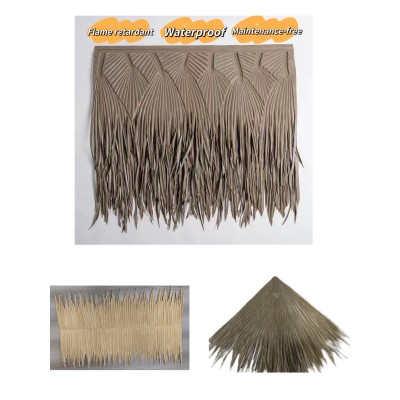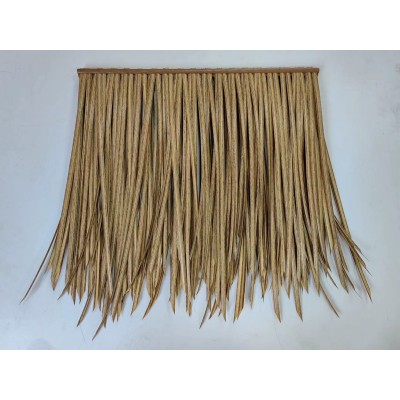artificial bamboo board in Maldives
Research on the application advantages and development prospects of large-area artificial bamboo board in Maldives
Abstract
This paper focuses on the use of large-area artificial bamboo board in tropical Maldives, in-depth analysis of its advantages compared with traditional building materials, and discusses its development prospects in Maldives. Through the research on the characteristics of artificial bamboo board, the construction demand and market environment of Maldives, the important role of artificial bamboo board in promoting the development of sustainable architecture in Maldives is revealed.
keyword
Large area artificial bamboo board; The Maldives; Advantage; Development prospect
I. Introduction
1.1 Research Background
As a tropical island country, tourism is its economic pillar, and the demand for infrastructure and tourism facilities continues to grow. Traditional building materials have problems in transportation and environmental protection, so it is urgent to seek new sustainable building materials. With its unique advantages, artificial bamboo board is expected to become an ideal choice in the field of construction in Maldives.
1.2 Research purpose and significance
This study aims to analyze the advantages of large-area artificial bamboo board used in the Maldives, predict its development prospects, provide a theoretical basis for the introduction of new materials in the Maldives construction industry, and promote the sustainable development of the local construction industry.
Second, a large area of artificial bamboo board overview
2.1 Definition and manufacturing process
The large-area artificial bamboo board is a sheet with certain specifications and strength made of bamboo after a series of processing, such as green, yellow, cooking, drying, sizing, hot pressing and other processes. Through advanced technology, the stability and durability of bamboo can be effectively improved.
2.2 Performance Features
Physical properties: The artificial bamboo board has moderate density, high strength, and good compression and bending resistance. Its thermal conductivity is low and its thermal insulation performance is better than many traditional building materials.
Chemical properties: After special treatment, artificial bamboo board has certain anti-insect and anti-corrosion properties, and can maintain good stability in humid environment.
Environmental performance: Bamboo grows rapidly, is a renewable resource, artificial bamboo board production process has less impact on the environment, in line with the concept of sustainable development.
Iii. Current situation and demand of construction industry in Maldives
3.1 Construction industry status
The Maldives construction industry has developed rapidly in recent years, with a large number of hotels, resorts and infrastructure construction projects constantly emerging. However, due to its special geographical environment, construction materials mainly rely on imports, and the cost is high.
3.2 Characteristics of building requirements
Tropical climate adaptability: Maldives belongs to the tropical monsoon climate, high temperature and rain, building materials need to have good weather resistance, moisture resistance and heat insulation.
Sustainability needs: With the global focus on environmental protection, the Maldives is also seeking more environmentally friendly and sustainable building solutions to reduce its impact on the environment.
Fourth, the advantages of large-area artificial bamboo board in the Maldives
4.1 Material performance advantages
Good weather resistance: After special treatment, the artificial bamboo board can effectively resist the high temperature, high humidity and strong ultraviolet environment of the Maldives, and is not easy to deformation, cracking and decay.
Excellent thermal insulation performance: its low thermal conductivity can effectively block the outside heat into the room, reduce air conditioning energy consumption, in line with the needs of energy-saving buildings in the Maldives.
Seismic performance: The flexibility of bamboo gives artificial bamboo a certain seismic ability, which is of great significance in the earthquake-prone Indian Ocean region.
4.2 Economic cost advantage
Reduced transportation costs: Compared with traditional building materials imported from distant regions, artificial bamboo panels can greatly reduce transportation costs if they can be produced locally or in the surrounding area.
High cost performance: The performance of artificial bamboo board is not inferior to many traditional building materials, but its cost is relatively low, which can effectively reduce the total cost of construction projects.
4.3 Environmental Advantages
Renewable resources: Bamboo has a short growth cycle and is a sustainable resource, and the use of artificial bamboo boards helps reduce dependence on forest resources.
Reducing carbon emissions: The low carbon emissions in the production process of artificial bamboo boards are in line with Maldiv's goal of combating climate change and achieving carbon neutrality.
Fifth, the development prospects of large-scale artificial bamboo boards in the Maldives
5.1 Market potential analysis
Construction market demand: The continuous construction boom in the Maldives, especially the construction of tourism-related buildings, provides a broad market space for artificial bamboo boards.
Consumer awareness and acceptance: With the improvement of environmental awareness, consumers' acceptance of environmentally friendly building materials has gradually increased, and artificial bamboo board is expected to gain more market recognition.
5.2 Challenges and countermeasures
Technical standards and norms: At present, the Maldives may lack technical standards and norms for the construction of artificial bamboo boards, which need to be formulated by relevant departments and enterprises.
Market promotion: Strengthen the promotion of the performance and advantages of artificial bamboo board, improve the awareness of builders and consumers.
5.3 Development trend forecast
Product innovation: With the development of technology, artificial bamboo board will continue to innovate, performance will be further improved, the scope of application will continue to expand.
Industrial cooperation: The cooperation between artificial bamboo plate production enterprises and local construction enterprises and developers in the Maldives will be closer to promote the coordinated development of the industry.
Vi. Conclusion
The use of large-area artificial bamboo boards in the Maldives has significant advantages, whether in terms of material performance, economic cost or environmental protection, it can well meet the needs of the Maldives construction industry. Despite some challenges, with the gradual maturity of the market and the continuous progress of technology, artificial bamboo boards have broad prospects for development in the Maldives. In the future, technology research and development, standard setting and marketing should be strengthened to give full play to the potential of artificial bamboo boards in the field of construction in the Maldives and contribute to local sustainable development.



